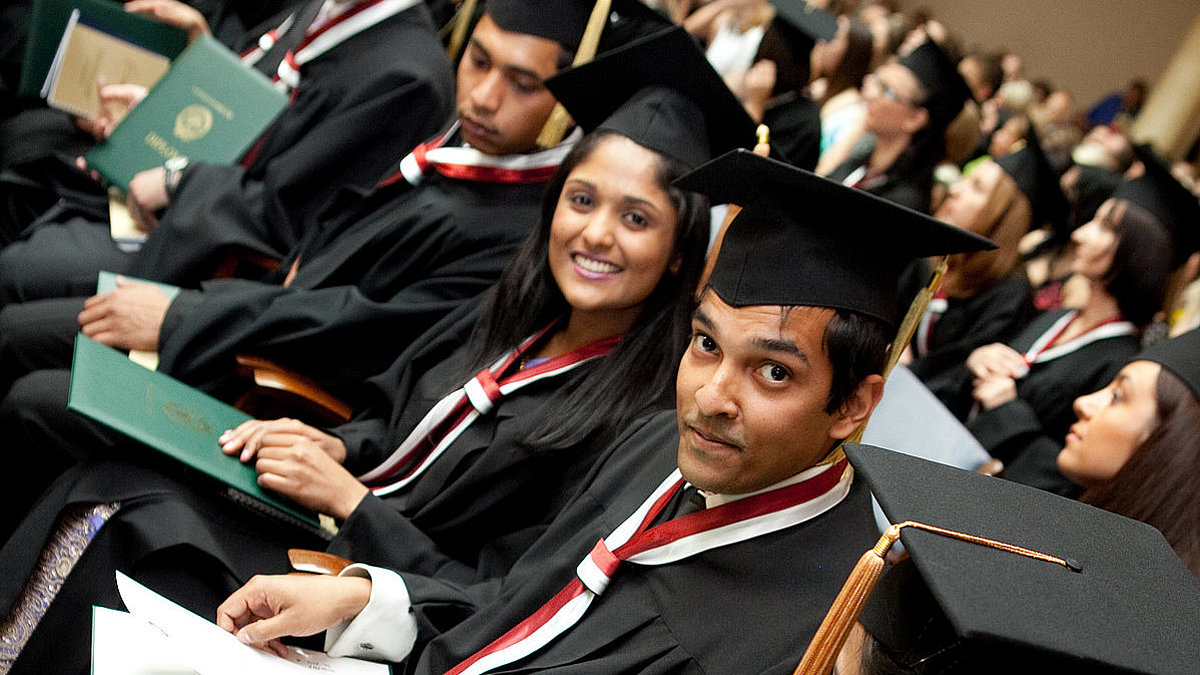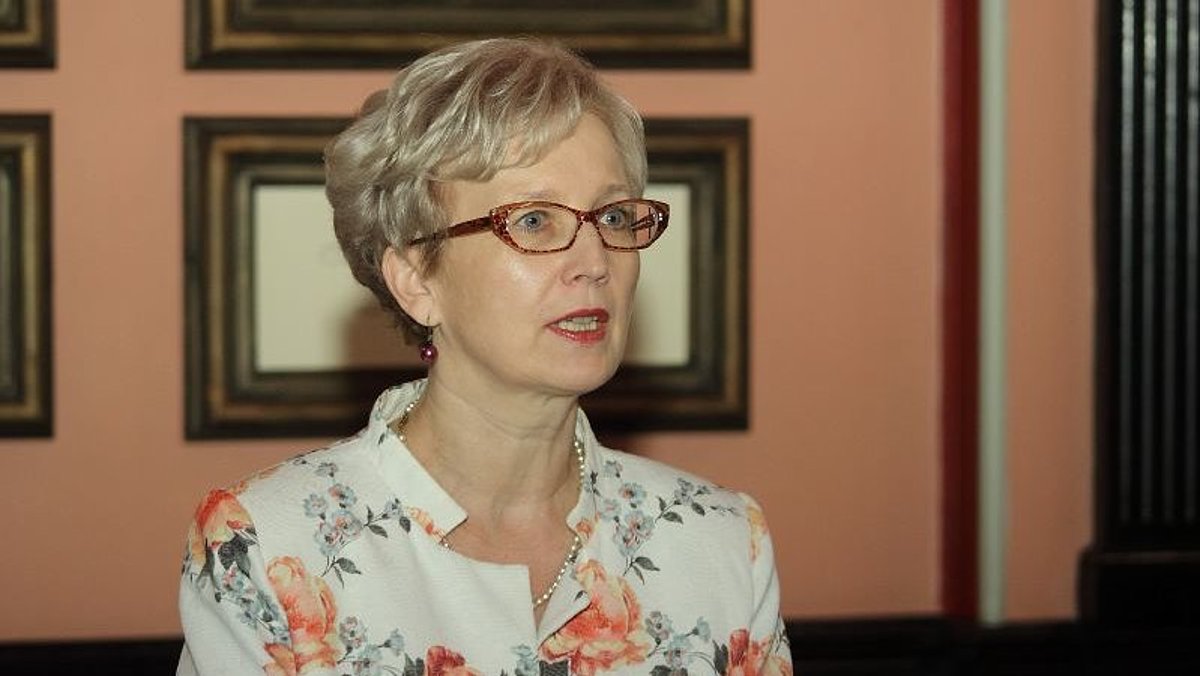
This is an interview with Professor Ingrida Rumba-Rozenfelde, Dean of the Faculty of Medicine who spoke about what makes the Faculty popular and about its newest achievements.
It is no secret that currently Latvia’s health care system is experiencing significant changes,however, more and more young people want to study medicine. How do you explain it?
The results of admissions in recent years show that young people are very much interested in studies of medicine and these figures are still growing year by year. The Medicine programme is one of the most popular UL study programmes. Already in 2009 the Faculty of Medicine received a record number of applications while last year’s enrolment statistics surpassed the most optimistic expectations. There were more than 10 entrants to the Medicine programme in the battle for single budget place. I do believe that these results prove the high value of medical education and prestige in the eyes of young people, as well as the quality of proposed study programmes. Besides most candidates choose their studies very carefully and marked them as the only or the priority choice – their career selection is not accidental.
Could you describe young people who study at the Faculty of Medicine?
Most of them already from the first year of studies are great patriots and idealists willing to work hard and seriously to achieve their goals. They deserve respect and support. Would-be doctors and pharmacists in everyday conversations and their attitude demonstrate strategic view of health care system issues and future prospects. It is encouraging that despite the difficulties currently experienced by Latvia’s health care system, a new generation of young doctors are still growing in Latvia. However, it would be unwise to rely only on this aspect, so “retention” of young doctors is also of national importance.
Without knowledge in Biology and Chemistry it is not possible to enter the Faculty of Medicine. How well are young people prepared for the exams?
I am not saying that today’s level of knowledge is low. The Faculty of Medicine year by year is pleased to conclude that candidates who applied for studies are highly motivated and well-prepared with excellent academic achievements, especially in Biology and Chemistry. Most young people choose medicine make at an early age – at the primary or the beginning of the secondary school and prepare themselves very purposefully for many years.
The great interest in the new Medical School at the Faculty of Medicine proves it.
We opened the new Medical School on May, 2010 to help students to prepare for studies at the University. The interest was very high, there are currently 224 students but their willingness to join expressed more than 400 young people. Students (forms 8 - 12) from more than 80 different secondary schools in Latvia applied for the new Medical School. We are particularly delighted by the fact that the majority of young people in their registration forms indicated that they wish to study medicine and work in the field of medicine. Studies are free of charge and last for 2 years. The graduates obtain the benefits of entering the Faculty of Medicine.
Please, tell us more about the Faculty, its history, teaching staff and study programmes.
The Faculty of Medicine was established in 1919, but was abolished in the Soviet period because of its real democratic spirit. The Faculty was re-established in1997 and provides the successful study environment for over 13 years. Currently, the Faculty of Medicine has 1700 students and enrols approximately 450 new students every year. The Faculty employs 122 highly qualified academic staff, 10 of which are full members of the Latvian Academy of Sciences, 31 professors, as well as 6 guest professors from Germany, Sweden and the United States. The Faculty of Medicine offers the following accredited study programmes: Medicine Second-level professional higher education programme in Latvian and English, Pharmacy Bachelor’s and Master’s degree programmes, Nursing Bachelor’s and Master’s degree programmes, as well as Medicine and Pharmacy doctoral degree programme and residency programme.
Could you name some well-known staff members of the Faculty?
There are many highly qualified and recognized professionals in the field of medicine, for example, Professor Valdis Pirags, Head of the Clinic for Internal Medicine, Pauls Stradins Clinical University Hospital; Professor Maris Mihelsons, Head of the Department of Surgery; Associated Professor Andrejs Erglis, Chief, Latvian Centre of Cardiology, Pauls Stradins Clinical University Hospital; Associated Professor Uga Dumpis, Head of the Department of Infection Control and others.
Are there any dynasties of doctors?
In Latvia, the dynasties of doctors are not rare. In families where parents or grandparents were doctors, children often choose medical professions. It is no coincidence because medicine fascinates and draws people in. There are also several well-known dynasties of doctors at our Faculty – the Ergli, the Pukisi, the Folkmani, the Razuki and others whose children have chosen to follow the footsteps of parents.
What is the difference between studies at the Faculty of Medicine and other universities with similar study programmes?
All our programmes are very modern as created upon the recent scientific achievements and the Scandinavian experience which is regarded as an example of health care in Europe. The process of studies is democratic and open, it is based upon the principle – the student is the centre of studies. It can be said without exaggeration that students and teachers are like one big family and programme managers are often called kindly as moms.
The integral and essential part of studies is exercises and practice, starting on the very early stage of studies. Practices for students of our Faculty are in the leading clinics, medical institutions of Riga and chemist’s as well. There is also a wide collaboration in the field of scientific work with several scientific institutions of UL, which gives an opportunity to strengthen the academic knowledge and motivates students to take part in scientific research projects. Besides the compulsory study courses, the Faculty of Medicine offers the widest opportunities for “C” part courses, which do not directly relate to speciality chosen, but will be useful in further professional activities, for example, foreign languages, psychology, economics and law subjects.
At the Faculty of Medicine lectures are also held in English, so you have the largest proportion of foreign students among all the faculties of UL. How does this affect the study environment?
Well, every year tens of foreign students from the United States, Germany, Sweden, Switzerland, Finland, Norway, Great Britain, Estonia, India, Japan, Lebanon, Pakistan, Syria and Thailand study at the Faculty of Medicine. These students set a high value upon the quality of our education and liberal costs of study because medical studies are very expensive, even elitist all over the world.
Multicultural environment is an added value to domestic students and students from abroad, as well as teaching staff to get new experience and knowledge. Communicating and working together play an important role for successful study process.
UL students often participate in exchange programmes and some time live and study abroad. Which country do students of medicine prefer?
Every year our students participate in the European Union’s educational programmes Campus Europea and Erasmus which offer students possibilities to study in one of the European Union partner universities for a period ranging from 3 months up to full academic year. The most popular countries are Germany, France, Denmark, Finland, Italy and Sweden. The Faculty has developed a particularly close collaboration with Karolinska Institute and Uppsala University in Sweden. Recently two medical students returned from Karolinska Institute - one of Europe’s most prestigious medical institutions. They are very impressed and pleased about the study time spent there.
Janis Priedkalns’ charitable contributions to UL last year had a long term positive impact on the people – he sold his Ferrari and donated the money for medical students’ scholarships.
It really was one of the last year’s emotional and extraordinary donations to UL. And again, I would like to say special word of thanks to Janis Priedkalns. His grant has already borne the first fruit and at the end of the last year the first three students received scholarships for research projects. The best students of the Faculty of Medicine also receive scholarships of other benefactors. These scholarships enable students to devote themselves to studies and research without worrying about day-to-day living.
The Faculty of Medicine will get new premises in the new UL Academic Centre in Tornakalns in a couple of years.
Yes, the Faculty of Medicine will be one of the first three UL faculties which will get completely new and modern, specially equipped premises within Tornakalns campus. The new complex of all faculty departments and museum should provide comfortable life space both for students and teaching staff.
What would you like to wish students studying medicine and those who are going to study medicine?
Do not give up and fulfil your dreams to become a doctor! From my experience I can say that all difficulties are worth it and when you accomplish the necessary curriculum in the chosen programmes your satisfaction will be boundless. In conclusion, I would refer to Professor Pauls Stradins who said that medicine is craft, science and art at the same time; it requires not only outstanding professional but also human qualities - soul power and high psychological stability.
Translated by students of the professional study programme "Translator" of the University of Latvia.

 Akadēmiskais centrs
Akadēmiskais centrs